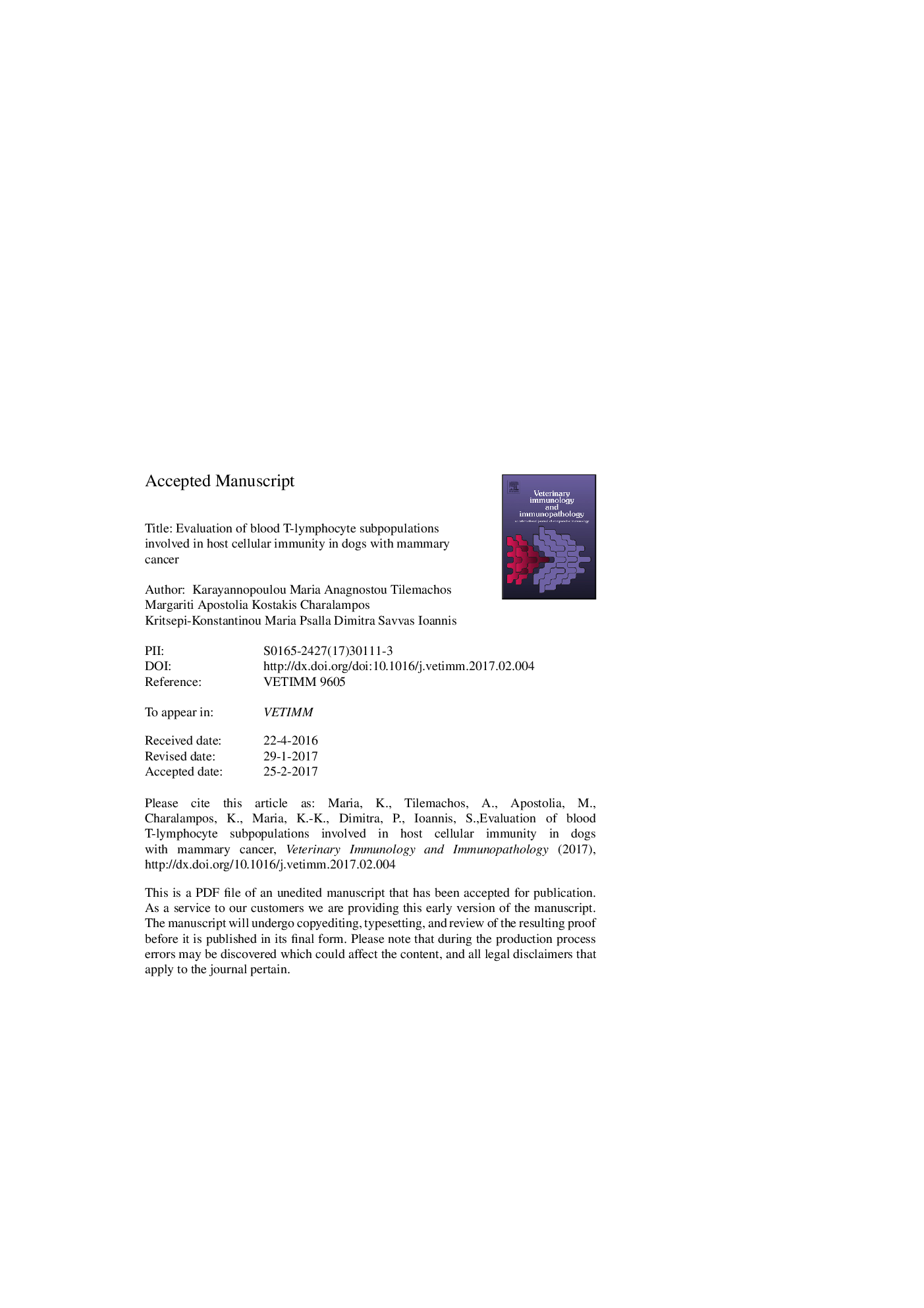| Article ID | Journal | Published Year | Pages | File Type |
|---|---|---|---|---|
| 5544749 | Veterinary Immunology and Immunopathology | 2017 | 22 Pages |
Abstract
Cancer-bearing patients are often immunosuppressed. In dogs with mammary or other cancers, various alterations in blood cell populations involved in host cellular immunity have been reported; among these cell populations some T-lymphocyte subsets play an important role against cancer. The purpose of the present study was to investigate any alterations in circulating T-lymphocyte subpopulations involved in cellular immunity in bitches with mammary cancer, in comparison to age-matched healthy intact bitches. Twenty eight dogs with mammary cancer and 14 control dogs were included in this study. Twelve out of the 28 bitches had mammary cancer of clinical stage II and 16/28 of stage III. Histological examination revealed that 23/28 animals had carcinomas, 3/28 sarcomas and 2/28 carcinosarcomas. White blood cell, neutrophil and lymphocyte absolute numbers were measured by complete blood count. Furthermore, blood T-lymphocyte population (CD3+) and the subpopulations CD4+, CD8+ and CD5low+ were assessed by flow cytometry. White blood cell and neutrophil but not lymphocyte absolute numbers were higher (PÂ =Â 0.003 and PÂ =Â 0.001, respectively) in cancer patients than controls. Flow cytometric analysis revealed that the relative percentage of T-lymphocytes (CD3+) and of CD4+, CD8+ subpopulations was lower (the CD4+/CD8+ ratio was higher), whereas the percentage of CD5low+ T-cells was higher, in dogs with cancer compared to controls; however, a statistically significant difference was found only in the case of CD8+ T-cells (PÂ =Â 0.014), whereas in the case of the CD4+/CD8+ ratio the difference almost reached statistical significance (PÂ =Â 0.059). Based on these findings, it can be suggested that, although the absolute number of blood lymphocytes is unchanged, the relative percentages of T-lymphocyte subpopulations involved in host cell-mediated immunity are altered, but only cytotoxic CD8+ T-cells are significantly suppressed, in dogs with mammary cancer of clinical stage II or III compared to age-matched healthy controls.
Related Topics
Life Sciences
Agricultural and Biological Sciences
Animal Science and Zoology
Authors
Maria Karayannopoulou, Tilemachos Anagnostou, Apostolia Margariti, Charalampos Kostakis, Maria Kritsepi-Konstantinou, Dimitra Psalla, Ioannis Savvas,
